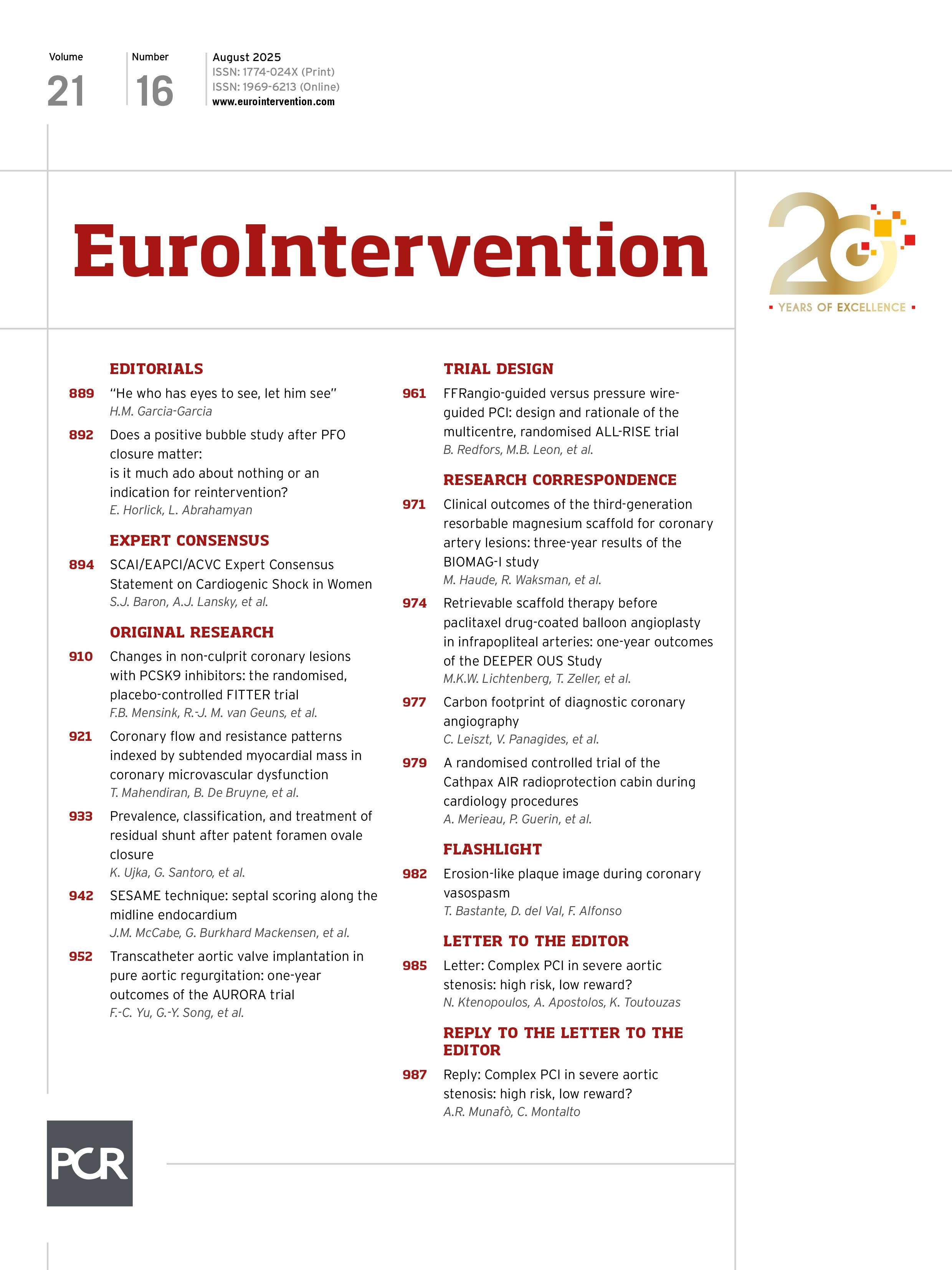Abstract
Wire-based indices of coronary physiology are the gold standard for guiding revascularisation decisions in patients with coronary artery disease and angiographically intermediate coronary stenoses. FFRangio is a novel angiography-based technology for assessing the functional significance of epicardial coronary stenoses without pressure wires or hyperaemic stimulus. The primary objective of the Advancing Cath Lab Results with FFRangio Coronary Physiology Assessment trial (ALL-RISE; ClinicalTrials.gov: NCT05893498) is to compare clinical outcomes in patients with chronic coronary syndromes or non-ST-segment elevation acute coronary syndromes undergoing coronary angiography with ≥1 coronary lesion suitable for physiological assessment. Patients will be randomised to FFRangio-guided or to pressure wire-guided treatment. The primary endpoint is the occurrence of major adverse cardiovascular events (MACE) at 1 year (a composite of all-cause death, myocardial infarction, or unplanned clinically driven revascularisation), assessed for non-inferiority of FFRangio-based versus pressure wire-based guidance. If non-inferiority is met, reflex superiority guidance will be tested. Secondary endpoints include periprocedural and early complications up to 30 days, individual components of MACE at 1 year, patient-reported health status, procedural resource utilisation and healthcare-related costs, and operator-assessed usability of the FFRangio and pressure wire systems. With a sample size of 1,924 patients, the study has 82.7% power to assess non-inferiority with a non-inferiority margin of 3.5%. The ALL-RISE trial will provide prospective clinical outcomes data on the relative safety, efficacy, and cost-effectiveness of a workflow using FFRangio as compared with pressure wire-based approaches for coronary lesion assessment among patients being considered for percutaneous coronary intervention.
Sign up for free!
Join us for free and access thousands of articles from EuroIntervention, as well as presentations, videos, cases from PCRonline.com

